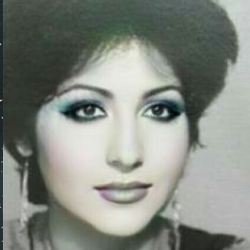| Организационный 2 m.
| Good afternoon boys and girls! I am glad to see you. Sit down, please. Who can tell me what date is it today? Thank you. What day of the week is it today? Boys and girls, look at the board. There is a plan. What will we do today? Good of you. There are our aims. Let’s try to get them. | Приветствуют учителя, отвечают на вопросы, самостоятельно ставят цели на урок, слушают. |
| Речевая зарядка 1 m. | Boys and girls, look at the screen. You can see words in a table. Who can tell me what part of speech it is? Yes, you are right it is an adjective. What adjectives do you know? Try to make short sentences with adjectives. Well done! | Смотрят на экран, вспоминают прилагательные, составляют предложения. |
| Основной 3 m.
3 m.
4 m.
9 m.
| Now, open your textbooks on page 77 exercise 4. There you can see two tables. One table is with normal adjectives and the second is with extreme adjectives. What do extreme adjectives mean? For what aim do we usually use them? Good of you! We use them to make effect stronger. Let’s work with extreme adjectives, you will see adjective and picture on the screen. Please, try to guess what they mean (ученики по картинкам догадываются о значении слов). Excellent! Now your task is to match normal adjectives with extreme adjectives. Is it clear? You have two minutes. Let’s check. I will turn on audio and you will check your answers. So, was it difficult? How many mistakes have you made? Good. Let’s train these adjectives. Look at exercise 6 on page 77. There are 6 questions. Your task is to give a short answer and to use extreme adjectives. Let’s try. Maxim, read the first sentence. Great! So, tell me one more time, for what aim do we use extreme adjectives? Good of you! Yesterday we talked about space trip. Today we will listen to the text about Chris’s plans for a trip. Look at the exercise 1 on page 77. Look through five sentences under a picture. You will listen to the story and your task is to mark: true or false. Is it clear? Let’s listen to. Okay, now look at the exercise 2 on page 77. We will listen to this text again. Look through the test. Are you ready? Let’s listen to. Let’s check. What was easier to do? The first exercise or the second? Okay. To sum up, tell me, where is Chris going to go? What is he going to do? Good! | Работают с учебником, отвечают.
Соединяют обыкновенные прилагательные с усилительными, проверяют по аудио записи. Тренируются использовать усилительные прилагательные.
Слушают аудио запись и выполняют задания в учебнике.
|
| Основной 5 m.
3 m.
3 m.
2 m.
5 m.
3 m. | Boys and girls, we can say about plans or events that they are definite and possible. Look at the board. When something is definite and we are sure, we use «will» and «won’t». When something is possible and we are not sure we use «might» and «might not». Let’s train this grammar rule. Please, open your workbooks on page 64 exercise 4. You have three-four minutes to do this task. Are you ready? Let’s check. Good of you! Who can tell me how to say «собираться» in English? Great. Translate, please - Я собираюсь плавать. - Она собирается съесть пиццу. - Они собираются путешествовать на поезде. Let’s train it. Look at the exercise 4 on page 64. You have to use the construction «to be going to». You have four minutes. Are you ready? Let’s check your work. Well done! We’ve trained the construction «to be going to». Now, look at the screen, there are four Russian sentences. Your task is to translate them into English in your copybooks.
So, our topic is travelling. We talked about different kinds of travelling. Let’s think about our region. How do you think what place in our region a tourist can visit? Good ideas! Today I want to read with you the text about Nikolo-Korelsky Monastery. Do you know something about this place? Have you ever visited this place? Okay. I’ll show you a short video about this place. Do you like it? Good. There is a text. Look. Let’s work with difficult words from this text. Good of you! Now you have four minutes to look through the text and understand the main idea. Are you ready? What is the main idea? What have you understood? Great! Your next task is to fill in the gaps with words in the table. Is it clear? Okay, you have three minutes. Let’s check. Excellent! (дополнительное задание: соединить дефиниции со словами) | Отвечают на вопросы. Смотрят на доску, слушают правило, тренируются, делая упражнения в рабочей тетради.
Переводят предложения с русского на английский, используя конструкцию «to be going to». Отвечают на вопросы, размышляют о своем регионе. Знакомятся со сложными словами, читают текст, выполняют задание к тексту. |
| Заключительный 1 m. | Thank you for your work. What did you do today? What have you learned? What was new for you? What was difficult for you? Is everything clear? Good of you. Your homework is to do exercise 2 on page 84 and answer the questions for the text about Nikolo-Korelsky Monastery. Thank you for your work. | Слушают учителя, записывают домашнее задание. |























